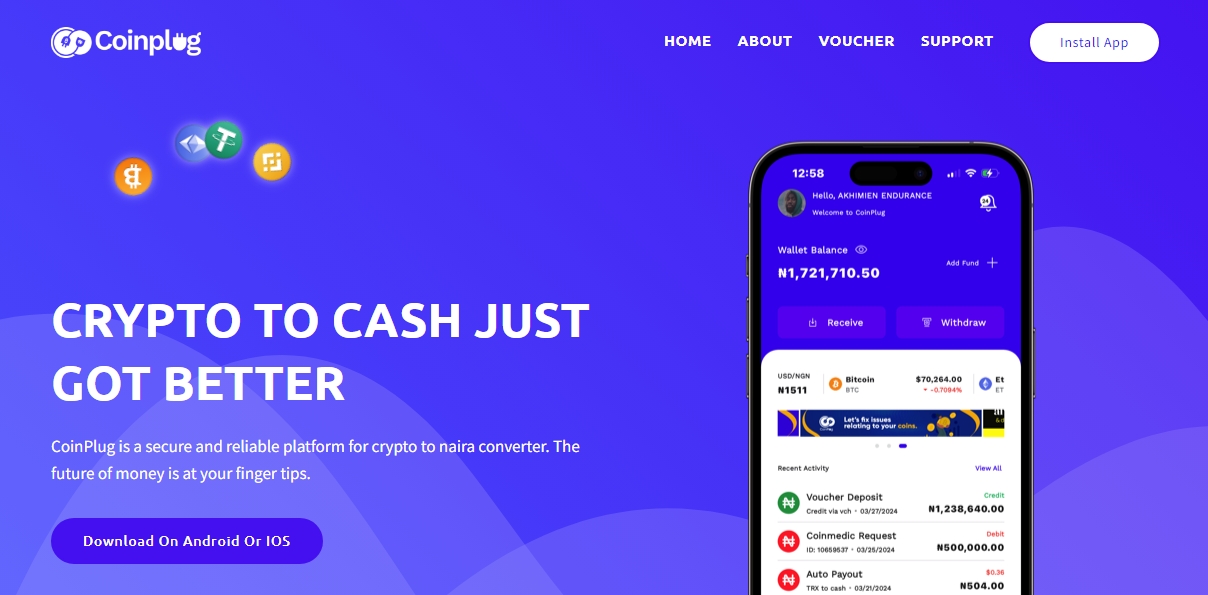Binance Waves Goodbye to Nigerian Market After Prolonged Regulatory Tussle
One of the world's largest cryptocurrency exchanges, Binance, has officially ceased operations in Nigeria following an extended period of regulatory uncertainty and a slew of back-and-forth disputes with authorities in Africa's largest economy.
In the past two weeks, reports emerged that the Fedral Government of Nigeria has demanded $10 billion from Binance as penalties for aiding some $26 billion of untraceable funds to be processed through their platform. SEC last year issued warnings that Binance Activities in Nigeria were illegal.
The move to exit the Nigerian market comes after over two years of a tenuous relationship between Binance and various regulatory bodies in the country. Despite its immense global popularity, Binance struggled to establish a firm foothold amidst Nigeria's evolving crypto landscape and patchwork of regulations.
Binance quietly informed its remaining Nigerian users this week that it would no longer be able to provide services to residents in the country effective immediately. All accounts based in Nigeria have now been closed, and Nigerian users are being urged to immediately withdraw any remaining funds held on the Binance platform.
"Due to restrictions put in place by regulators within Nigeria, we have ceased operations for all Nigerian customers indefinitely," read Binance's notice to users. "We have made every effort to raise awareness and continue operating in a compliant manner, however recent edicts and correspondence from the authorities show that we have no choice but to discontinue our operations."
The decision follows a series of increasingly forceful warnings and threats from multiple Nigerian regulators over the past two years. As early as 2021, the Central Bank of Nigeria (CBN) instructed domestic banks to identify and block all accounts associated with cryptocurrency exchanges in an effort to curb cryptocurrency usage.
While Binance was not explicitly named in their initial warnings, the CBN soon escalated its actions by directly placing Binance on a list of unauthorized forex dealers and threatened harsh penalties against any Nigerian bank caught providing services to the exchange.

The Nigerian Securities and Exchange Commission (SEC) also stepped in, eventually ruling that Binance did not have approval to directly operate within the Nigerian capital markets. They cautioned the public against utilizing the popular exchange and other unregistered platforms.
Regulatory hurdles were exacerbated by a shifting political environment in Nigeria as well. In late 2022, with a new administration taking power, Nigeria's Economic and Financial Crimes Commission went as far as actively investigating Binance and threatening arrests over allegations of illicit fund movements through the exchange.
Binance initially fought to maintain services in Nigeria, touting workarounds like allowing deposits only via third-party payment channels, as well as P2P and cash trading options. But with regulators refusing to back down, and continued insistence from CBN and others that Binance was facilitating illegal forex transfers and financing for illegal activities, the exchange ultimately determined there was no path to legally operating in the Nigerian market.
Despite the decentralized and global nature of cryptocurrency, Binance had prided itself on working cooperatively with regulators in every jurisdiction it was operational. But the relentless resistance from Nigerian authorities made Nigeria unique among nations home to Binance users.
The pullout will impact a large number of Nigerian crypto traders and investors who had continued accessing Binance through various means over the past couple years despite the regulatory crackdown. Nigeria has one of the highest adoptions of cryptocurrency in the world and significant trading activity.
Nigerian policymakers had held a hardline stance on cryptocurrency, often conflating it entirely with illicit financial activities and seeking to ban and restrict it through traditional monetary policy levers. Officials cited concerns over money laundering, terrorism financing, foreign exchange infractions and general financial instability in their crusade against crypto platforms like Binance.
Now millions of Nigerian crypto users will need to find an alternative exchange to access the broader ecosystem. With major players like Binance, Coinbase, and most other prominent exchanges blocked, many may be forced into unregulated peer-to-peer and decentralized venues with fewer safeguards and consumer protections.
The Binance saga highlights the broader challenges and patchwork of regulatory environments that crypto exchanges and blockchain platforms continue to navigate around the world. Denied entry into mature Western markets, exchanges are increasingly looking toward growth in developing nations across Africa and Asia - where they often face hardline policies and resistance from central banks and financial regulators skeptical of cryptocurrency's merits.
For Binance, Nigeria appeared a key battleground in this dynamic. But in the end, the relentless efforts from Nigerian policymakers to prohibit the world's largest crypto exchange were ultimately successful in expelling it from the market.






![[IMPORTANT ] Why Now is the Perfect Time to Build a Crypto/Blockchain Startup in Nigeria<](https://www.techboo.net/uploads/blog/2023/12/blog-1703584541.png)